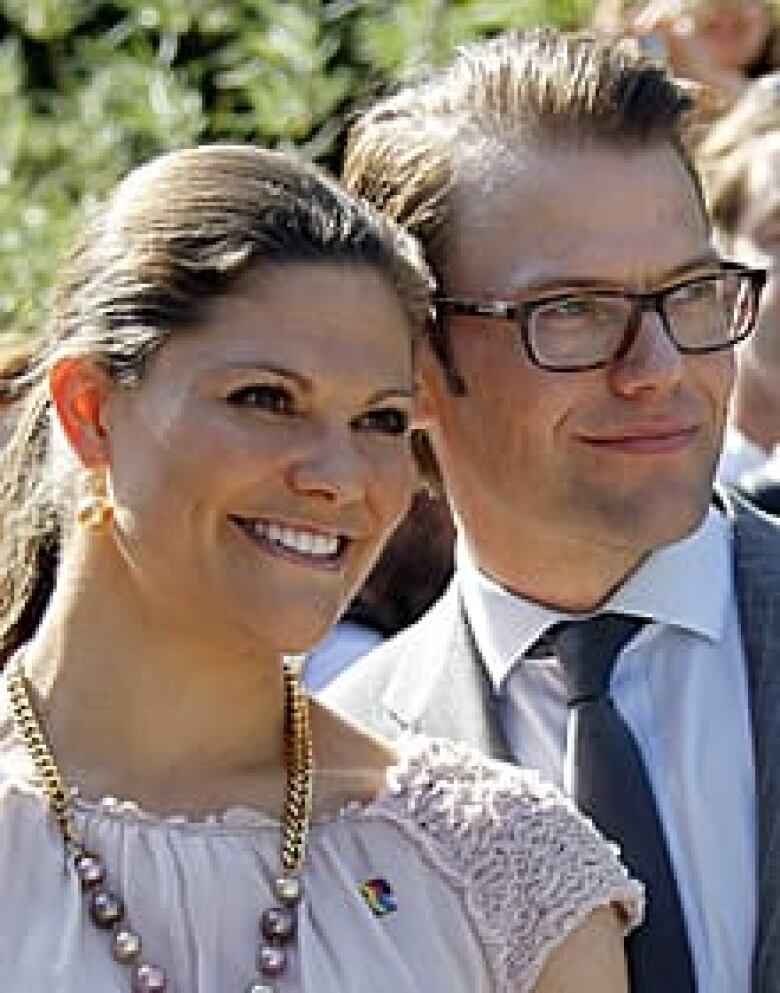Consulting Canada on the royal succession merely a 'courtesy'

Sorting out the family inheritance can be a messy business. But it rarely requires an act of Parliament or involves consultation with the heads of Commonwealth governments.
But that is exactly what's happening in the case of the Royal Family, and if British Prime Minister David Cameron gets his way, the male bias would be eliminated when it comes to inheriting the throne.
Cameron wrote a letter to Commonwealth leaders last month outlining his plan to change British law so that a male heir would no longer take precedence over his older sister.
But while that letter came to Prime Minister Stephen Harper for Canada's input, this country won't have any legal sway in the matter.
"I think what we have here is a courtesy request, and a motion in Parliament supporting the British endeavour is all that's needed," says Ned Franks, a professor emeritus at Queen's University in Kingston, Ont., and an expert on Canadian parliamentary procedure.
"The only people who can change the rules of succession are the British Parliament," he says.
There is no way, he went on, that the Canadian Parliament can determine who is the king or queen of England. "But it can determine who is the king or queen of Canada, and whether we even want one."
Harper has already signalled that Canada supports the changes proposed by Cameron and Franks expects that other Commonwealth countries will be similarly inclined.
'The age of men coming first is long past'
"I don’t know of a single country within the Commonwealth that has so much objection to women leaders that they would say No to this," he says.
"It's simply bringing a part of the British Constitution, a part of the ceremonial more than the working Constitution, up to date and recognizing that the age of men coming first is long past."
Discussions on the succession rules have been going on behind the scenes for quite a while, but this year's wedding of Prince William, second in line for the throne, and Kate, the Duchess of Cambridge, put the issue on the front burner.
"I think the British government is really eager to settle any question regarding the succession before William and Kate have children," says Carolyn Harris, a teaching fellow at Queen's University and an expert on British royalty.
According to the rules of succession that go back three centuries, a woman can only take the throne if she has no younger brothers, as was the case with Queen Elizabeth II.
"We espouse gender equality in all other aspects of life and it is an anomaly that in the rules relating to the highest public office we continue to enshrine male superiority," Cameron wrote.
Harris, a PhD history candidate who is studying British and French royalty, says the British move is part of broader trend among continental monarchies away from male preferential succession.

In Sweden, for example, the current Crown Princess Victoria has a younger brother. When she and her brother were toddlers, Swedish law was changed making her the heir to the throne over her brother.
But that change did not go smoothly.
"The King of Sweden was not in favour of this as it involved stripping his son of the title of heir and transferring that to his daughter," said Harris.
"I really think the British government wants this to be addressed before William and Kate have children to avoid those complications."
Cameron is also proposing changes that would clear the way for a monarch to marry a Roman Catholic.
Harris says that at the time the Act of Settlement was passed by the British Parliament in 1701, there had been a number of royal consorts who were Catholic, and who were particularly unpopular. The wife of King Charles I, Henrietta Maria, for example, was impeached for treason in the 1640s.
"The Act of Settlement reflected the very specific circumstances of its time, whereas now there is no longer that concern about the influence a Catholic consort might have over a Protestant monarch," says Harris.

Before the Canadian-born Autumn Kelly, who was a Catholic, married the Queen's grandson, Peter Phillips, in 2008, she converted to Anglicanism. The change meant he could keep his place in the line to the throne.
"Under David Cameron's reforms, she would have been able to keep her faith," says Harris.
Franks doesn’t see any big issues arising in Canada over the proposed changes, though there may be some reaction from extreme royalists opposed to any change because it would be a break with tradition, and from those who argue in favour of abolishing the monarchy.
But he sees those as "relatively small voices in a relatively calm sea."
"I don’t see much of an obstacle."

